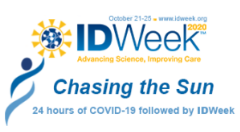
Paddy Ssentongo, MD, PhD
Assistant Professor
Penn State College of Medicine
Disclosure: I do not have any relevant financial / non-financial relationships with any proprietary interests.
Dr. Ssentongo is a physician-scientist and an Assistant Professor at the College of Medicine, Department of Public Health Sciences, Division of Epidemiology, Penn State University. His clinical research focuses on characterizing the epidemiology and pathophysiology of infectious causes (SARS-CoV-2, HIV, Malaria, CMV, Paenibacillus thiaminolyticus) of brain disorders, particularly post-acute sequelae of COVID-19, mental health disorders, epilepsy, and hydrocephalus. He is currently working on NIH-funded projects to study neonatal sepsis and hydrocephalus in Africa.
Dr. Ssentongo pioneered and developed the first murine models of epilepsy as a sequela of malaria and the first murine model of Paenibacillus thiaminolyticus, the causative agent of postinfectious hydrocephalus. With a global public health perspective, Dr. Ssentongo’s work further deconstructs the intersection of micro-and micronutrient malnutrition and infectious disease dynamics. His work incorporates spatial epidemiology and statistics, remote-sensing, predictive modeling, and meta-analyses with an overarching goal of optimizing precision medicine and public health.
Dr. Ssentongo's research output has guided public health recommendations and guidelines by The World Health Organization, The Centers for Disease Control and Prevention, Governmental and Non-Governmental Organizations. His research has featured in various press releases, including the US News and World Report, Reuters, CNN, The Guardian, The Washington Post, NPR, ABC TV, Penn State News, Yahoo News, Futurity, WebMD, HealthDay, Lancaster Online, and The Hill.
Dr. Ssentongo profoundly believes in the power of mentorship. He volunteers to mentor undergraduates, graduates, medical students, and residents in study designs, biostatistics, SAS and R programming (including Shiny Apps), ArcGIS, writing grants, systematic reviews/meta-analysis, and how to successfully publish high-quality research studies. His mentees have been first authors in various journals, including JAMA Network Open, BMJ Open, Scientific Reports, among many other peer-reviewed journals.

